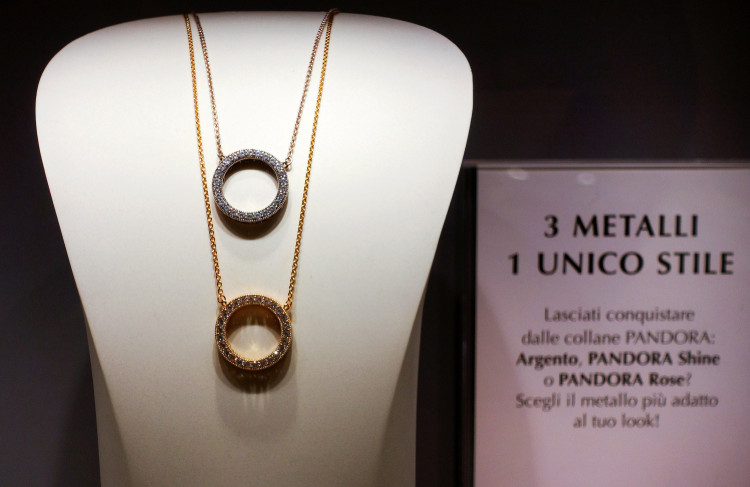Danish fashion jewelry brand, Pandora, recently named American actress Ashley Park as its new global ambassador. Though initially unfamiliar to many, Park has gained recognition in China over the past two years for her role as Mindy in the hit American show "Emily in Paris." Park's Asian-American identity reflects Pandora's focus on both the U.S. and Chinese markets.
In early July 2023, Pandora China announced actress Liu Yuxin as its new brand ambassador for the region, marking the company's official reboot in the Chinese market. For a while, Pandora's marketing efforts in China had been stagnant, with fewer initiatives compared to its peak.
Pandora's Business Woes
The 2020 COVID-19 pandemic affected Pandora's global business, including its performance in China. By September 2021, the company's Danish headquarters introduced a comprehensive reform strategy, targeting brand, design, personalization, and key markets to achieve sustainable, profitable growth.
The primary markets in this strategy are the U.S. and China. In the strategy, named the "Phoenix Plan," Pandora aims to triple its revenues in China and double them in the U.S. based on 2019 figures. In 2019, Pandora's revenue in China was 2 billion Danish kroner (approximately 21.3 billion yuan), accounting for about 9.1% of the brand's global revenue.
However, this reform was initially rolled out in Western markets, with China's activation delayed until just a month ago. Since announcing the reform in 2019, Pandora mentioned that the delay in transitioning its Chinese business was due to waiting for the market to stabilize.
Affected by the ongoing pandemic in 2022, Pandora's revenue in China dropped to 737 million Danish kroner (approximately 7.50 billion yuan), a staggering 47% decline compared to 2021. With three years of underwhelming performance, the brand's share of global revenue decreased from 9% in 2019 to 5% in 2021, and further dwindled to 3%.
Addressing Structural Challenges
Before the pandemic, Pandora's business growth in China was already showing signs of slowing. Between 2018 and 2019, the company's revenues in the region remained stagnant. Pandora's 2020 annual report pinpointed "structural challenges" in the Chinese market. While the pandemic has certainly hurt its performance, issues with product structure and brand positioning contributed to the brand's decline post-pandemic.
As the pandemic's influence wanes in 2023, Pandora has upgraded its annual performance forecast, maintaining a cautiously optimistic stance on the Chinese market. Yet, achieving a revenue target of 60 billion yuan in the medium to long term in China remains a challenge.
Pandora officials state that having Liu Yuxin as the new spokesperson is to "engage younger consumers and establish a connection with them." This youth-focused approach has been a strategy for Pandora in recent years. Their 2019 choice of Guan Xiaotong as the brand ambassador for China was also aimed at bridging the gap with younger consumers. But whether such strategies can effectively revamp the brand remains a question.
For a long time, Pandora, known as an affordable luxury jewelry brand, now aims to reposition itself as a "collectible" brand. However, its current product lineup doesn't seem to match the collectible value of precious metals and natural diamonds. Moreover, Pandora's diamond product line, popular in international markets, hasn't made its way into China yet.
New Store Concepts
Another sign of Pandora's brand reform in China is the launch of its new concept store, EVOKE 2.0, in Shanghai's Grand Gateway Plaza. This store concept focuses on prime areas and locations in first-tier cities. In 2022, the concept was introduced in the U.S., with the first store opening on New York's Fifth Avenue.
In 2022, Pandora opened 88 new concept stores worldwide, 32 of which were in the U.S. Following this, the brand plans to continue opening more EVOKE 2.0 stores in China. Currently, Pandora has 240 stores in China, with 20 in Shanghai, 20 in Beijing, 12 in Chengdu, and 13 in Hangzhou.






